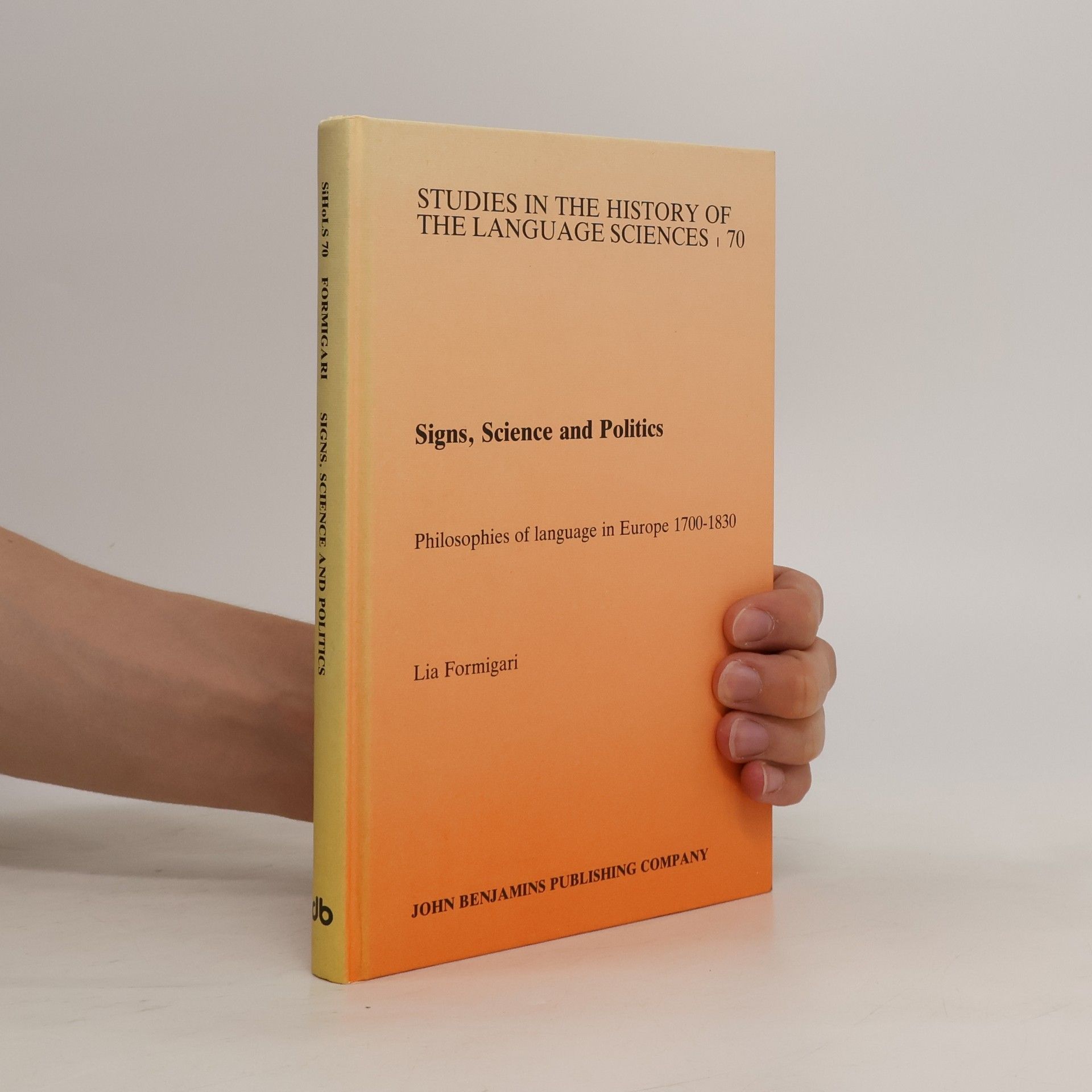This book tells the story of how 18th-century European philosophy used Locke's theory of signs to build a natural history of speech and to investigate the semiotic tools with which nature and civil society can be controlled. The story ends at the point where this approach to language sciences was called into question. Its epilogue is the description of the birth of an alternative between empiricism and idealism in late 18th- and early 19th-century theories of language. This alternative has given rise to such irreducible dichotomies as empirical linguistics vs. speculative linguistics, philosophies of linguistics vs. philosophy of language. Since then philosophers have largely given up reflecting on linguistic practice and have left the burden of unifying and interpreting empirical research data to professional linguists, limiting themselves to the study of foundations and to purely self-contemplative undertakings. The theoretical and institutional relevance to the present of the problems arising from this situation is in itself a sufficient reason for casting our minds back over a period in which, as in no other, linguistic research was an integral part of the encyclopaedia of knowledge, and in which philosophers reflected, and encouraged reflection, upon the semiotic instruments of science and politics.
Lia Formigari Livres
